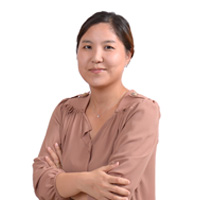[Weekender] From trash to art
In a fancy Seoul building, an upcycling ecosystem is being hatched
By Lee Sun-youngPublished : Aug. 30, 2019 - 09:59
A fancy new building with an inviting lawn yard, public art installations and plenty of Instagrammable photo spots, Seoul Upcycling Plaza looks just like a hip place to be.
And that’s what city officials hope it will become -- a magnet for trendsetters and a hotbed of new lifestyle movements.
And that’s what city officials hope it will become -- a magnet for trendsetters and a hotbed of new lifestyle movements.

Upcycling is, according to the center’s public relations manager Cho Ara, a step beyond recycling.
“It is not just about using things again (recycling). It is about giving them a new spin, value and life, with technology, design or often with an artistic touch,” she said.
Occupying over 16,540 square meters in Seoul’s eastern district of Seongdong-gu, the building, with five floors above ground and two floors below, houses everything that upcycling enthusiasts can dream of -- a marketplace for upcycled products; an open, shared workshop with state-of-the art equipment; a “material bank” where used materials are neatly stored after the necessary sorting and cleaning; an office area and cafe; and even a photo studio for resident artists and businesspeople to use.

“It’s where you want to be, if you’re in this field,” said Nam Keum-ho, who works with glass bottles and is one of the nearly 40 tenant craftspeople and businesses there. “People who visit here are more willing to learn about and participate in my glass art trial programs, which sometimes leads to sales (of my glasswork).”
Nam converts used glass bottles into plates, wall clocks and other decorative items. He runs glass-art experience programs, and sells his creations at his studio and at the market on the second floor of the building.
“I recently closed my first workshop in Insa-dong to solely operate here,” he added.
Eco Party Mearry, an upcycle fashion brand launched by thrift store chain “Beautiful Store,” has its shop on the second floor of this building.
“Clothes of very fine fabrics do end up among the piles of clothes donated to Beautiful Store. What we do is to collect them, give them a trendy touch and curate them with our own bags (made with recycled fabrics),” designer Jang Suk-gyoung explained.
Fashion upcycling sounds good, but in the real world of business there are many hardships, she added. “To keep the business going, profits matter.”
A few other tenant businesses, interviewed by The Korea Herald, echoed Jang’s view.
“More than actual sales of upcycled works, most artists or businesses rely on one-time experience programs or educational courses,” one of them said.

Early Tuesday afternoon, more than half of the studios had their lights on, but there was nobody manning them and the doors were locked.
The center had a group of middle-aged women on a guided tour and a handful of others who looked like individual visitors. In “Dream Factory,” a fabrication lab equipped with 3D printers, laser cutters, a vacuum former and more, a lecture was underway with dozens of participants.
“It is quieter than usual now. We do get a lot of visitors during the hours of educational and hands-on experience programs. There are many such opportunities being offered right now,” Cho said.
The frequent sight of workers coming back and forth signaled a special day was approaching. On Sept. 5, the plaza will host dignitaries at a ceremony to celebrate its two-year anniversary.
“It will be like a festival for all citizens as well, with food trucks, a range of free, hands-on experience programs and other programs to enjoy,” she added.
With a lofty vision of creating an “upcycling ecosystem” hub and a 50-billion won budget, Seoul Upcycling Plaza was built in 2017 with designs from the famed local architect Seung H-Sang. The city plans to add more upcycling centers in other parts of Seoul.
The anniversary event kicks off a three-month Seoul Upcycling Festival, which includes various lectures, forums and visitor-friendly programs.
Seoul Upcycling Plaza is located about 500 meters from Janghanpyeong Subway Station. It closes on Mondays.
By Lee Sun-young (milaya@heraldcorp.com)






![[Weekender] Korea's traditional sauce culture gains global recognition](http://res.heraldm.com/phpwas/restmb_idxmake.php?idx=644&simg=/content/image/2024/11/21/20241121050153_0.jpg&u=20241123224317)










![[More than APT] Residents, architects together design homes](http://res.heraldm.com/phpwas/restmb_idxmake.php?idx=652&simg=/content/image/2024/11/24/20241124050036_0.jpg&u=)
